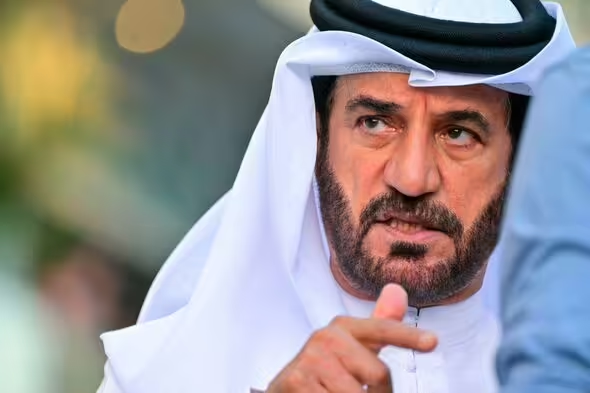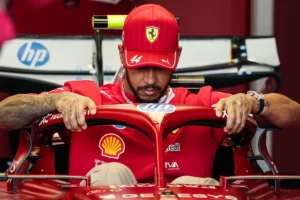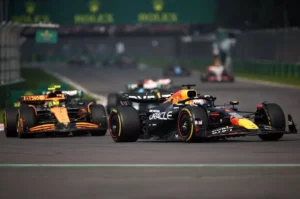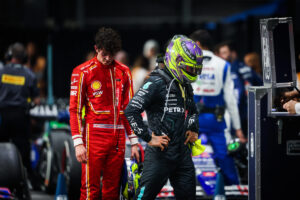Breaking news:F1 drivers dismayed by controversial FIA rule change as stars left in…Read more

F1 drivers dismayed by controversial FIA rule change as stars left in the dark
Alex Wurz, the head of the Grand Prix Drivers’ Association (GPDA), has expressed concern over the recent changes made by the FIA regarding penalties for drivers, particularly in relation to the use of foul language. Wurz revealed that Formula 1 drivers were not consulted about these new penalty guidelines, which could see drivers face significant consequences, including the potential deduction of championship points, for inappropriate language. These changes come after the FIA introduced a revision of the international sporting code ahead of the 2025 F1 season, continuing President Mohammed Ben Sulayem’s stance on regulating driver behavior, specifically their language.
The new regulations are part of the FIA’s broader effort to enforce a crackdown on language deemed inappropriate within the sport. Last year, Ben Sulayem angered many drivers with comments made ahead of the Singapore Grand Prix. This latest shift in the rules appears to be another step in his ongoing efforts to control the public image of Formula 1 and ensure that drivers adhere to a strict code of conduct.
One of the most significant changes comes in the form of the updated version of Article 12.2.1 in Appendix B of the FIA’s regulations. The new wording of the code specifically targets any actions, words, or writings that could be seen as causing moral harm or damage to the FIA, its members, its executives, or the broader motorsport community. The regulations also stress that any behavior conflicting with the values upheld by the FIA could lead to penalties. This overhaul is seen as a direct response to recent incidents where drivers were critical of the FIA or used strong language in public settings, such as Max Verstappen’s punishment for swearing during a press conference at the Singapore Grand Prix.
The penalties for breaching these new rules are severe. A driver found guilty of using inappropriate language or engaging in similar misconduct can be fined up to £33,800 (€40,000) for their first offense. If the driver repeats the behavior, the fine could escalate to a staggering £101,400 (€120,000) for subsequent offenses. These financial penalties are in addition to sporting sanctions, which include the possibility of a one-month suspension from racing and the deduction of championship points for drivers who repeatedly violate the rules.
Despite the gravity of these changes, Wurz emphasized that no drivers were consulted about the revisions, which has caused frustration within the driver community. He stated that the drivers only learned about the changes through media reports, and he was unsure whether the FIA’s own drivers’ commission had been consulted during the decision-making process. Wurz expressed hope that the stricter regulations would not result in many fines being imposed, but the lack of communication between the governing body and the GPDA has raised concerns about the transparency and fairness of these new policies.
The FIA’s ongoing relationship with F1 drivers has been contentious, particularly under the leadership of Mohammed Ben Sulayem. The president’s outspoken comments and decisions have sparked criticism from several top drivers, including Lewis Hamilton and George Russell. These tensions have only heightened as the FIA continues to impose new rules without sufficient consultation with those directly affected by them, namely the drivers.
As the new season approaches, it is clear that the drivers’ dissatisfaction with the FIA’s lack of communication and increasing restrictions is unlikely to ease. The lack of a formal dialogue between the GPDA and the FIA could further fuel the already strained relationship between the two parties. The introduction of harsher penalties for foul language, particularly the potential for championship point deductions, could add to the pressure on drivers, who already face intense competition on and off the track.
This shift in FIA policy reflects broader concerns within the motorsport community about the balance between maintaining discipline and respecting the autonomy of drivers. As the 2025 season unfolds, it remains to be seen how these changes will impact the relationship between the governing body and the drivers, and whether the FIA will continue to impose such strict measures without further consultation.





